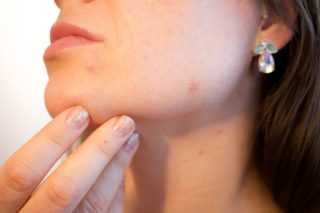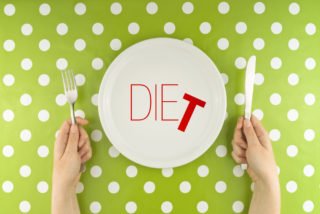Each year, new diet trends appear on the scene, and a new way of eating or not eating makes the list. South Beach, Paleolific, Ketogenic, Whole30, Zone Diet, Vegan, Raw Food, Atkins, the Volumetric diet, the list goes on and on. With global obesity on the rise, it’s easy to understand why each year the phrase ‘How to lose weight’ ranks high on Google’s most searched list. Going on a new diet takes time and often money. And most of the time they don’t work. Here’s how to spot a fad diet.
Fad diet or not?
How do you tell if a diet is a fad or not? After all, you will read so many great reviews online about new diets, your friends are raving and you are really desperate to lose weight.
This new diet idea requires you to eliminate whole food groups
This is common in many diets, and it’s almost always a bad idea. Why? Simple really. Our bodies require nourishment from all the food groups, because each food group serves a different purpose.
If a diet is telling you to cut all types of fats or carbohydrates, for example, it’s a sign that it’s not sustainable. Even if you do lose weight initially, you’re bound to pick it up again once you start including those food groups again.

You need to change your entire lifestyle to accommodate the diet
This is a big tell-tale sign of a fad diet. Science has shown that the most effective diet is the one that’s based on small lifestyle changes. If you’re spending a small fortune on protein powders or smoothie ingredients, or you can only shop at certain expensive stores to fill up, think again. This is most likely a sign that your diet isn’t going to be that sustainable in the long run. Some protein powders and artificial mass-produced smoothies have hidden ingredients that can damage your gut health, which in turn will lead to poorer health. They are artificial to start with and not at all sustainable for long term health and wellness.
Your nails and skin don’t look good
This is another obvious sign that you are on a bad, fad diet. As mentioned, some diets will require you to cut a variety of foods that your body needs to sustain itself. When you follow this rule, you might start noticing that your skin becomes dry. It loses its glow and starts breaking out.
If your hair loses its shiny condition or even starts to become brittle and break. A diet low in essential fats or protein, for example, can lead to these symptoms.

What should you be looking for in a diet instead?
Before you start another Monday armed with a new diet idea, consider this.
Start by speaking to your doctor about any challenges you might be facing. Be open about your energy levels, schedule and weight-loss goals, and ask him or her to provide guidance on a program that will work for you. Not all medical doctors are experts in diet and may refer you to a qualified dietician.
Take a nutrigenomics test
This is a genetic test which focuses on your genes and the nutrition your genes need. This is an excellent way to check what your genes need when it comes to choosing the right food plan for you. Again, discuss this with a medical specialist. They are properly trained to interpret gene tests. So before you hit the button on Google, rather arm yourself with good working knowledge. If you want to read more about this fascinating wellness tool, click here.
Changing your diet takes time
When you choose a program, remember Rome was not built in a day. Be patient and kind to yourself. Commit to a long-term steady program of change. The right diet for you is one that gives you energy, enables you to focus, nourishes your whole body. It will also make you feel better about yourself. It’s also the one that ensures you lose unwanted weight over a healthy time period.
How much weight can you lose and keep off?
The recommendation for healthy weight loss is approximately 0.2 to 0.9 kg a week, but this can vary between cases. Your medical provider can also advise you on how much you can and should lose on a weekly basis.
The eating plan you choose should have the following features:
- A fad diet will promise you quick results. If a diet says you can lose a lot of weight in a short period, then it won’t be sustainable in the long run.
- Your diet must be manageable within your lifestyle and fit within your budget
- A good healthy diet must include a wide variety of healthy foods from all the major food groups, and provides adequate nourishment while reducing the calories you don’t need
- It includes foods that you normally enjoy, and is not overly restrictive
- It provides support if you need it
- The diet supports your exercise routine.
- If you follow the safety guidelines, it leads to effective and long-term results
- When you have met your weight-loss goals, it helps you to make long-term lifestyle changes that will help the weight stay off.

The Bottom Line
Something many people are unwilling to accept is that they will have to make permanent changes to the way they eat if they want to maintain a healthy weight. For this to happen, they need to start living a healthy lifestyle that they will enjoy. According to Harvard Health, there are various diets that fit this description, such as the DASH diet or the Mediterranean diet, which has benefits at every age you might find yourself.
Read more about the dietary approach that scientists believe works best for most
Last year, US News and World Report has named the Mediterranean the “best diet overall” for the second year running. It can reduce the risk of metabolic syndrome, depression, specific cancers, diabetes, and heart disease. While it has also been shown to reduce frailty in older adults, they also enjoy improved physical function and better mental health. You can read more by clicking here.
References:
https://www.mayoclinic.org/healthy-lifestyle/weight-loss/in-depth/weight-loss/art-20048466
https://www.health.harvard.edu/blog/a-practical-guide-to-the-mediterranean-diet-2019032116194




![women [longevity live]](https://longevitylive.com/wp-content/uploads/2020/01/photo-of-women-walking-down-the-street-1116984-100x100.jpg)










